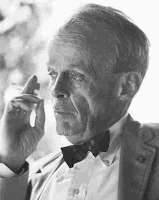Dover Beach
The sea is calm tonight.The tide is full, the moon lies fairUpon the straits; on the French coast the lightGleams and is gone; the cliffs of England stand,Glimmering and vast, out in the tranquil bay.Come to the window, sweet is the night-air!Only, from the long line of sprayWhere the sea meets the moon-blanched land,Listen! you hear the grating roarOf pebbles which the waves draw back, and fling,At their return, up the high strand,Begin, and cease, and then again begin,With tremulous cadence slow, and bringThe eternal note of sadness in.
Sophocles long agoHeard it on the Aegean, and it broughtInto his mind the turbid ebb and flowOf human misery; weFind also in the sound a thought,Hearing it by this distant northern sea.
The Sea of FaithWas once, too, at the full, and round earth's shoreLay like the folds of a bright girdle furled.But now I only hearIts melancholy, long, withdrawing roar,Retreating, to the breathOf the night-wind, down the vast edges drearAnd naked shingles of the world.
Ah, love, let us be trueTo one another! for the world, which seemsTo lie before us like a land of dreams,So various, so beautiful, so new,Hath really neither joy, nor love, nor light,Nor certitude, nor peace, nor help for pain;And we are here as on a darkling plainSwept with confused alarms of struggle and flight,Where ignorant armies clash by night.--Matthew Arnold
A great poem, perhaps the only great poem Arnold ever wrote. And a quintessentially Victorian one in its disillusionment and its mourning for lost belief. Still, Anthony Hecht's cheeky response to the poem deftly takes the wind out of Arnold's rhetorical sails:
The Dover Bitch: A Criticism of Life
So there stood Matthew Arnold and this girlWith the cliffs of England crumbling away behind them,And he said to her, "Try to be true to me,And I'll do the same for you, for things are badAll over, etc., etc."Well, now, I knew this girl. It's true she had readSophocles in a fairly good translationAnd caught that bitter allusion to the sea,But all the time he was talking she had in mindThe notion of what his whiskers would feel likeOn the back of her neck. She told me later onThat after a while she got to looking outAt the lights across the channel, and felt really sad,Thinking of all the wine and enormous bedsAnd blandishments in French and the perfumesAnd then she got really angry. To have been broughtAll the way down from London, and then be addressedAs a sort of mournful cosmic last resortIs really tough on a girl, and she was pretty.Anyway, she watched him pace the roomAnd finger his watch-chain and seem to sweat a bit,And then she said one or two unprintable things.But you mustn't judge her by that. What I mean to say is,She's really all right. I still see her once in a whileAnd she always treats me right. We have a drinkAnd I give her a good time, and perhaps it's a yearBefore I see her again, but there she is,Running to fat, but dependable a they come,And sometimes I bring her a bottle of Nuit d'Amour.--Anthony Hecht





